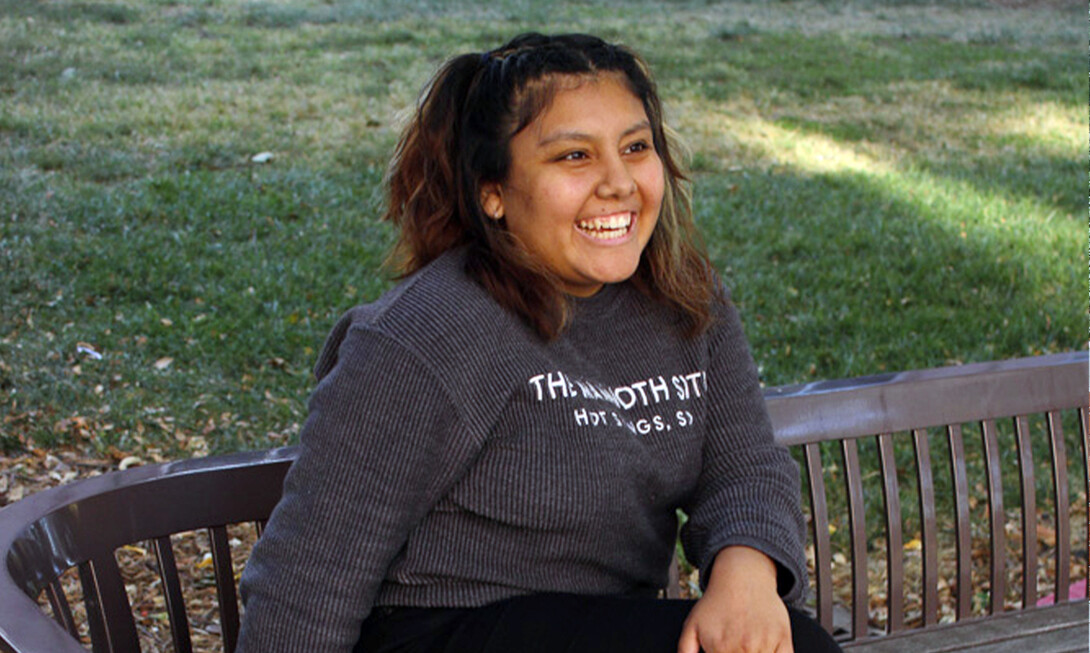
Editor’s Note — This is part of a weekly student conversation series highlighted as part of Hispanic Heritage Month on the University of Nebraska–Lincoln’s Medium page. The series will feature students who are making impacts on campus and beyond. This week, meet Bex Rangel, a psychology major from Bellevue, Nebraska. From working as a well-being coach on campus and a youth supervisor at Boys Town, to advocating for BIPOC mental health education and joining the Family Development Lab, Rangel is committed to helping others.
You’ve been a well-being coach, a peer mentor and worked as a youth supervisor for Boys Town, and you have a goal to obtain a master’s in social work. Has helping others always been something you’ve been passionate about and/or is there a particular experience that pushed you in that direction?
I’ve always been someone who is talkative and social, but I also had vitiligo from elementary school until it fully went away during my junior year of high school. I isolated myself emotionally because of it, and since it happened when I was still a kid, it had a very big impact on me. This experience allowed me to become an introspective person, but I felt really lonely during that time. I realized I didn’t really want anyone to feel like that, and at the same time, I wanted to share what I learned from it with others. So for me, I feel it was a little bit of both.
My work as a well-being coach and peer mentor showed me that people sometimes just want to be heard and feel seen. I also think there is still a huge stigma around asking for help or for advice. I feel it’s very Midwestern to just grit your teeth and bear it, because the idea is that those things make you stronger. That might be true some of the time, but sometimes there are things we just need a little help with. At Boys Town, I was more of the eyes and ears for the staff there. It was the most difficult experience I had because, while I believed I was helping, a lot of the job was addressing behaviors that were negative, so a lot of the kids were not very appreciative of my “help.” Still, it made me realize that I wasn’t going to be liked even when I felt I was helping. Not everyone will appreciate the kind of help I have or can give, which is important even when it comes to working with university students one on one.
Talk about your passion for BIPOC mental health education.
I am interested in BIPOC mental health education because, at large, our communities don’t even recognize that mental health exists. It can be hard to show emotions within your own household because many of our parents are immigrants, came from low-income households, or generally faced many stressors that they believe we don’t have to face — making our issues nonexistent to them. So, it’s important to advocate for both ourselves — so we can end the cycle of generational trauma — but also for our parents, because it’s never too late to heal. Aside from that, being a BIPOC individual comes with many challenges, even if you have certain privileges. Microaggressions are known to hurt BIPOC folks and impact their mental health negatively. All that combined is why I’m very passionate about educating people, specifically on BIPOC mental health, because it comes with its own challenges.
What kind of work do you do through the Family Development Lab?
Right now, I’m still in my training phase, but we work with parents to see how they lead their child to flourish or falter throughout their development. So, we ask the parents about the different aspects in their relationship and see how it impacts the developing child. We investigate the relationship between the parents and their child, and we also see how the parents work together to raise their child. I’m pretty interested in working with children, so joining this lab, in tandem with my experience at Boys Town, has begun to craft my interests for my career.
What do you hope to accomplish in your lifetime?
One thing I do hope I do is impact at least one child’s life positively. There are a lot of kids who fall between the cracks, in small and large ways, and a lot of people don’t notice until they’re spiraling in their 20s, 30s, even 40s. There’s so much that can impact a child, and I really hope that the work I do remedies that in some way.
Who inspires you?
This is probably cheesy, but I think Brené Brown does really great work. I love hearing her talk about vulnerability — it’s a really important message.
What is your advice to other students looking to make an impact?
My advice is to think about the challenges you faced and how someone out there could benefit from your story. Make sure you’re also paying attention to the people around you and what they’re going through — not only can you learn from that, but you can also help others through those things, too.







